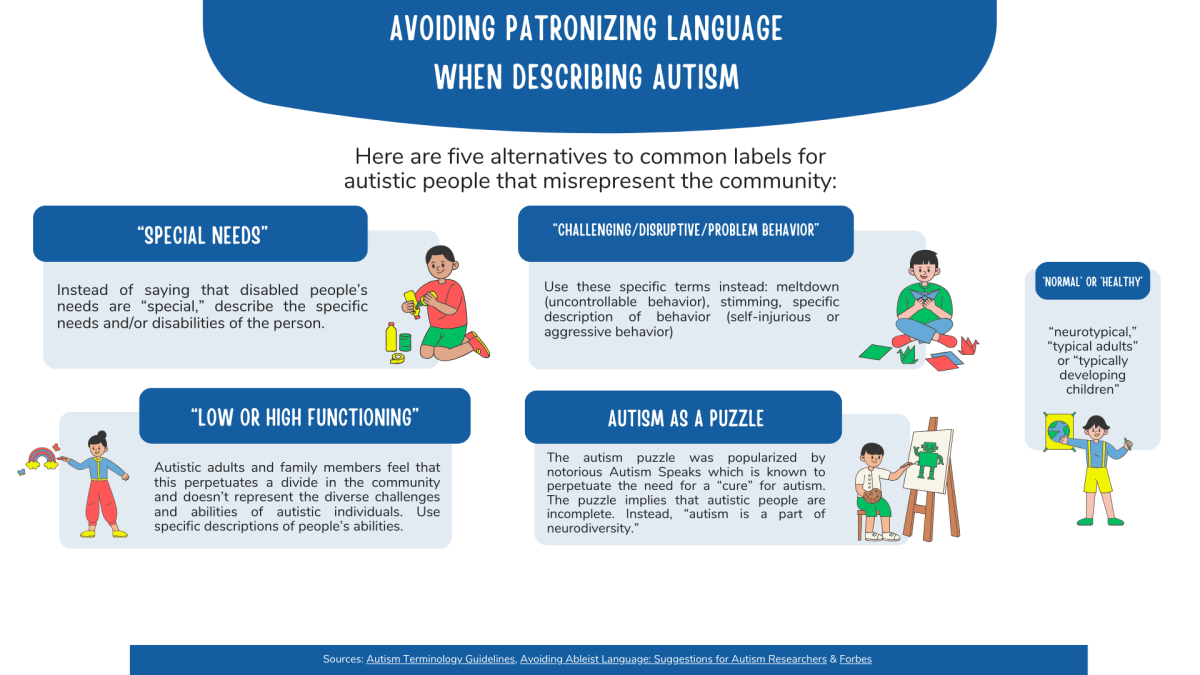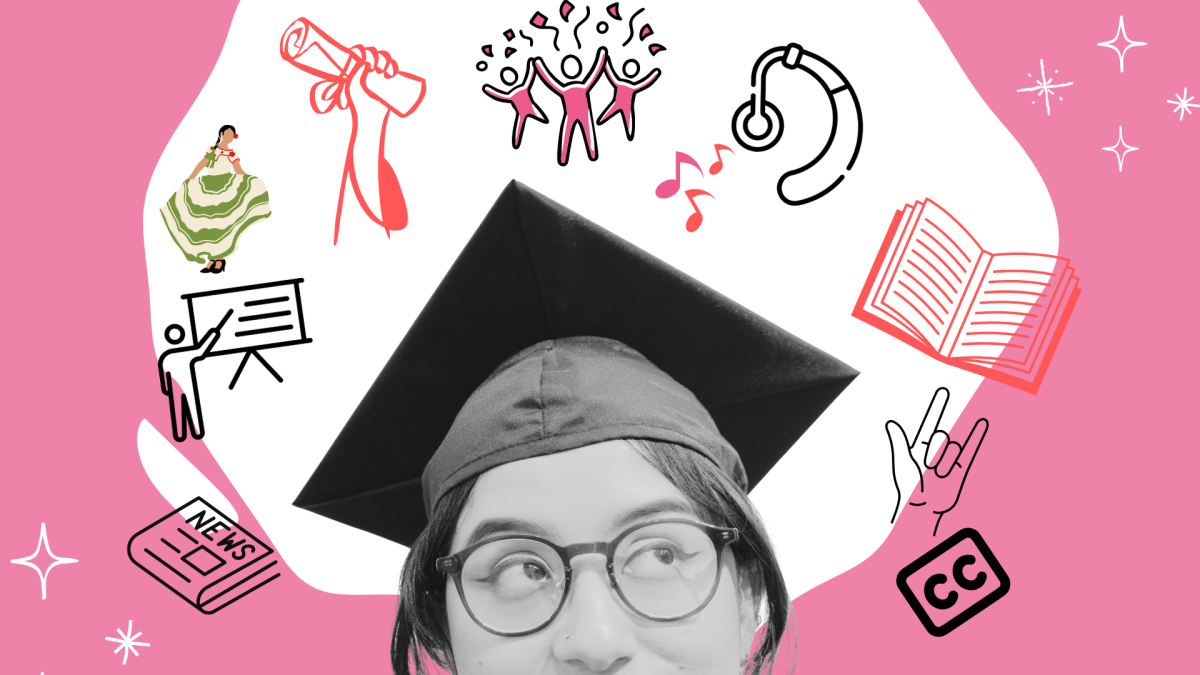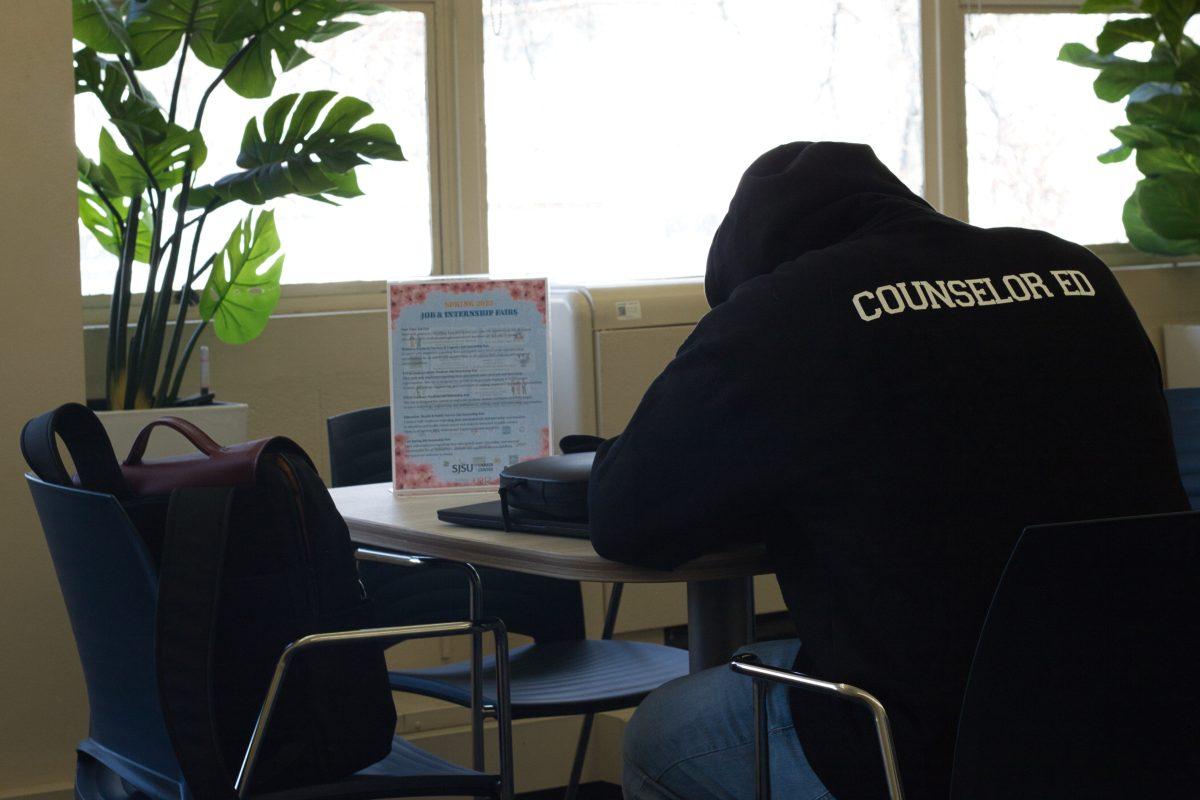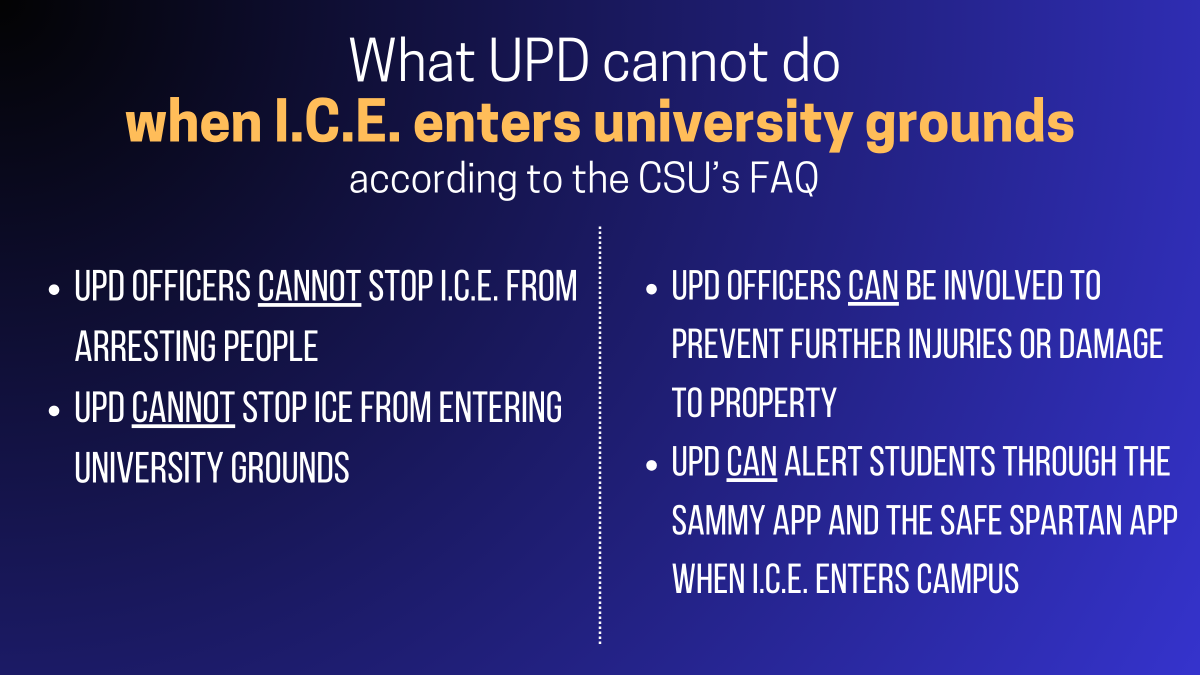Punit Sundar, who graduated from San Jose State in 2022 with a masters in bioinformatics, is one of the students who has benefited from mentoring during her time at SJSU.
Sundar said she met her mentor Wendy Lee, an assistant professor and graduate advisor for SJSU’s master’s bioinformatics program, at an orientation event.
She said she found Lee enthusiastic, approachable and knowledgeable in her field. These were qualities which motivated Sundar to take advantage of Lee’s office hours.
Sundar said while she was enrolled in one of Lee’s classes, she sought out Lee’s guidance in hopes of learning more about career options in bioinformatics.
“It was a genuine curiosity on my end,” Sundar said. “I didn’t know what I was getting myself into, I just really wanted to take as much advantage as I could of the program.”
She said although she wasn’t explicitly seeking mentorship when she began meeting with Lee, it was helpful having someone like her to go to for information.
“We just developed a natural connection,” Sundar said. “I didn’t really think of her as a mentor at the time. It was more like, ‘This person has worked in the industry before, let me just talk to her.’ ” She attributes several of her significant scholarly and career advancements to Lee’s help, including having her master’s project published at a conference and the attainment of her current full-time job as a bioinformatician.
Sundar said her advice to students seeking mentorship, especially to those who are unsure of what path to take after graduation, would be to seek out a professor who is approachable and whose work they find interesting.
“Just start off by going to office hours. You could ask them random questions, it does not have to be about your field or even your classwork,” Sundar said. “You could just say, ‘I’m not really sure what to do with my career,’ and I’m sure they’d be able to give you some advice on it.”
She said students may have to reach out to multiple professors before they find one who is willing to give the time and effort required for mentorship, but the benefits make it well worth it.
One resource SJSU students can utilize if they are seeking mentorship is SJSU2 Mentoring & Meetups, a mentoring program by the Career Center, according to its website.
The program aims to help prepare students for life after college by connecting them with alumni so they can learn from people who have been in their position before, according to the same website.
Anita Manuel, associate director for career education at SJSU’s Career Center, said SJSU2 Mentoring & Meetups can provide the kind of in-depth help that students may not be able to get elsewhere.
“You can get a lot of information by looking up LinkedIn profiles or a company’s site, but it’s never gonna be as beneficial as someone who was actually in your shoes,” Manuel said.
She said two main things students can gain through the program are advice on how to break into their field of choice and examples of potential career paths.
Manuel said mentors who participate in the program are all vetted to ensure they have genuine intention of providing guidance and support to their mentees.
Students in the program can either engage in short or long-term mentoring, according to the program website.
Manuel said the long-term style of mentorship can be particularly useful for those who are looking to make meaningful connections they can come back to throughout their job searches and careers.
Christine Vega, Chicana and Chicano Studies assistant professor at SJSU, said there is a lot to gain on each side of a mentor/mentee relationship.
Vega said she identifies as a “femtor,” a term she learned from one of her former “femtees.”
She said the term is meant to “feminize the labor of mentorship,” and that it is important to recognize the role gender can play in these kinds of relationships.
“Mentorship falls a lot on the laps of women of color or femmes and gender-nonconforming people of color who are professors,” Vega said. “To recognize the labor, which oftentimes, we do out of cariño or because we love what we do – we end up taking a lot of students in, so that’s also our reality.”
She said “femtorship,” a form of mentoring involving reciprocity and effort from each side, is what makes the relationship special.
“They’re also putting in labor to seek out and talk to you and share what’s going on,” Vega said. “That takes a lot, especially for first-generation people of color. So that, to me, is kind of the context around femtorship and also the context around our labor.”
Students such as Sundar, who credit their mentoring relationships with important academic and professional opportunities, are not the only ones who benefit from mentorship.
Vega said when her mentees succeed, it reminds her of why she does the work to begin with.
“That’s one of the things that I love about my job, is to hear back when they get the fellowship – when they get accepted to Ph.D. programs – when they get the job they’ve been wanting,” Vega said. “That just brings me so much joy . . . you put in so much but when you see your students succeed it just brings so much happiness and pride.”
She said for certain groups within the student population, mentorship can be a crucial resource.
“When you’re the first to go to college or university, it’s new terrain, especially when you’re the first to go,” Vega said. “I think creating community is always gonna be important or really hard.”
Vega said her advice to students who need help navigating higher education is to surround themselves with supportive people, including mentors.






































